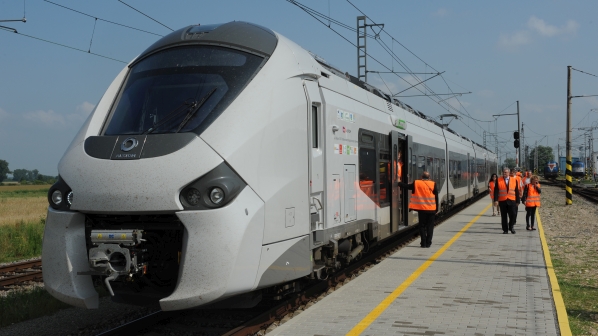The tender was released by Région Grand Est, France, South Rhineland-Palatinate Regional Rail Authority (ZSPNV-Süd) and North Rhineland-Palatinate Regional Rail Authority (ZSPNV-Nord), Germany, in association with the public transport authorities in Rhineland-Palatinate, Saarland, and Baden-Württemberg. The contract is due to start on December 8 2024, and will run until December 2039.
The contract, split into two lots, will cover 4,300,000 train-km in France and 2,100,000 train-km in Germany. Services will operate on the following routes:
- Neustadt an der Weinstrasse - Landau - Wissembourg - Haguenau - Strasbourg
- Mulhouse - Müllheim
- Strasbourg - Offenburg
- Offenburg - Freiburg - Müllheim (partial daily operation)
- Wörth - Speyer - Mannheim (partial daily operation)
- Karsruhe main station - Wörth - Lauterbourg - Strasbourg
- Metz - Perl - Trier
- Metz - Forbach - Sarrebruck, and
- Strasbourg - Sarrebruck.
The Trier - Metz service will operate every two hours, alternating with the existing regional service in Germany to create an hourly service.
The hourly Neustadt an der Weinstrasse - Landau - Wissembourg service will be extended to Haguenau and Strasbourg, resulting in an increase in frequency on the French side of the border.
Operators will be required to take on staff from German Rail (DB) and French National Railways (SNCF) that are currently employed on the services.
Région Grand Est has ordered 39 new Coridia Polyvalent electro-diesel multiple units from Alstom, with 30 allocated for the cross-border services. If the rolling stock is not delivered in time, the region will make other trains available in the interim. The operator will be responsible for fleet maintenance, as well as selling tickets in Germany, although it will not set the fares. Stations in France that are only served by these services will also be maintained by the operator.
New stations
DB, the Rhineland-Palatinate ministry of transport, ZSPNV-Süd and ZSPNV-Nord have also signed a €40m framework agreement to build 17 new stations in the region.
Two will replace existing stations, while others will provide new connections for towns and villages not currently connected to the network. The stations will be accessible for passengers with reduced mobility, and are expected to attract 5200 new passengers a day.
The cost will be split 75%:25% between the State of Rhineland-Palatinate and DB. Construction is due to start in 2027.

